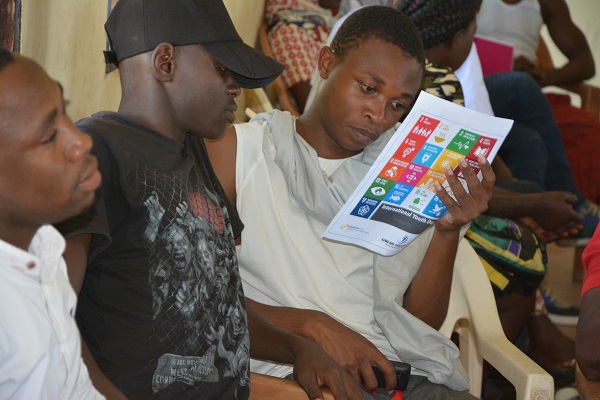
Creating awareness amongst today’s youngsters on the issue of sustainable development is not just a matter of teaching, it is about inspiring action.
Education is central to development. It is the primary vehicle by which economically and socially marginalized adults and children can lift themselves out of poverty, better understand and improve their health, create sustainable livelihoods and obtain the means to participate more fully in their communities. Educating youngsters on sustainable development issues is most effective when it is based on generating experiences and active involvement of youth, not only as a ‘participant’ in programs and projects, in particular as an actor in the development and organization of such things including policy making and political decision making.
Education however goes beyond classrooms and transmitting information and knowledge. Our definition of education has to do with the learning process, which can take several forms. This process is not dependent on a teacher-student relationship and can also be found on a more individual level, such as people teaching themselves.
So does the Education youth receive translate into skills and knowledge for Sustainable Development?
The answer to this lies in the education; formal, non-informal and informal education learning processes. Schools and other formal educational institutions play a strong role in the shaping of society. They are, to a large extent, the factories that mold society’s participants. For many fortunate people, the school system provides the first opportunity for formal participation in an organized system. Some of the most important lessons of human life and living are learned in schools; the skills of engaging with society at large. One significant impact of formal education is that those who fail to be part of that system are likely to be excluded in other aspects of life, including employment and economic participation.
In terms of including young people as participants in the quest for solutions to global problems, a focus on the formal education is critical. The spaces provided by schools and universities do much to influence youthful minds to generate some of the approaches needed to overcome our failures to agree on how economic resources can be managed for a more just, sustainable and peaceful world. In looking at schools as an important vehicle for youth to participate in addressing the many complex problems facing the world, we need to increase the participation of young people in the formal education system; reforming the current education systems to be more humane, caring and embracing of those values that we want to see become widespread in our world.
There is a powerful opportunity for society if young people can participate positively in all aspects of sustainable development. In order to do so; young people need education, political support, resources, skills and hope. Young people have a lot to offer to sustainable development and should participate in planning for our future.
Realizing youth involvement in a way which is meaningful is a first step in the process of truly educating our youth about what sustainable development is supposed to be, and more importantly, what they can do to make it happen. Education, at all levels, can be a powerful engine for promoting sustainability.


